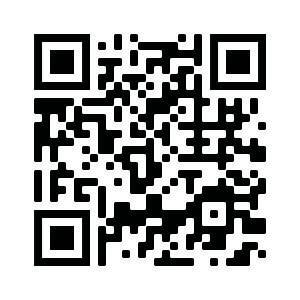Welcome to Washington University in St. Louis
WASHINGTON UNIVERSITY IN ST. LOUIS | 3
are you excited about?
are you nervous about? Who is my TXSM? How can I contact my TXSM? STUDENT MENTOR Thursday, January 12
What
What
GROUND RULES FOR SMALL GROUP
• Confidentiality. We want to create an atmosphere for open, honest exchange. We ask that things said in this space stay in this space.
• Our primary commitment is to learn from each other. We will listen to each other and not simply talk at each other. We acknowledge differences amongst us in backgrounds, skills, interests, and values. We realize that it is these very differences that will increase our awareness and understanding through this process.
• We will not demean, devalue, or “put down” people. for their experiences, lack of experiences, or difference in interpretation of those experiences.
• We will trust that people are always doing the best they can. We will give each other the benefit of the doubt. We will assume we are all trying our hardest and that our intentions are good even when the impact is not.
• Challenge the idea and not the person. If we wish to challenge something that has been said, we will challenge the idea or the practice referred to, not the individual sharing this idea or practice.
• Speak your discomfort. If something is bothering you, please share this with the group. Often our emotional reactions to this process offer the most valuable learning opportunities.
• Shift or pivot your role. Be mindful of taking up much more space than others. On the same note, empower yourself to speak up when others are dominating the conversation.
• Don’t freeze people in time. We are all a work in progress. We will not assume that one comment or one opinion made at one time captures the whole of a person’s character.
Adapted From: The Program on Intergroup Relations, University of Michigan
With acknowledgement to Melanie Morrison of Allies for Change & Shayla Griffin, 2012.
| 4
WASHINGTON UNIVERSITY IN ST. LOUIS
REFLECTING ON MY VALUES
Below are a list of values. Circle ones that strongly resonate with you. If you have a personal value not on this list, write it down.
Values List
Abundance Acceptance Accountability Achievement Advancement Adventure Advocacy Ambition Appreciation Attractiveness Autonomy Balance Being the Best Benevolence Boldness Brilliance Calmness Caring Challenge Charity Cheerfullness Cleverness Community Commitment Compassion Cooperation Collaboration
Consistency Contribution Creativity Credibility Curiousity Daring Decisiveness Dedication Dependability Diversity Empathy Encouragement Enthusiasm Ethics Excellence Expressiveness Fairness Family Friendships Flexibility Freedom Fun Generosity Grace Growth Flexibility Happiness
Honesty Humility Humor Inclusiveness Independence Individuality Innovation Inspiration Intelligence Intuition Joy Kindness Knowledge Leadership Learning Love Loyalty Making a Difference Mindfulness Motivation Optimism Open-Mindedness Originality Passion Peace Perfection Performance
Personal Development Playfulness Popularity Power Professionalism Preparedness Proactivity Punctuality Quality Recognition Safety Security Service Spirituality Stability Relationships Reliability Resourcefulness Responsibility Responsiveness Self-Control Selflessness Simplicity Success Teamwork
Thankfulness Thoughtfulness Understanding Uniqueness Usefulness Versatility Vision Warmth Wealth Well-Being Wisdom Zeal
WASHINGTON UNIVERSITY IN ST. LOUIS | 5
Looking at my circled values, are there any themes that I am seeing?
What are my core values?
Why did I choose these core values?
What do I perceive as WashU’s Values?
How do my core values influence my actions?
WASHINGTON UNIVERSITY IN ST. LOUIS | 6
I AM FROM... An exercise for surfacing cultural identity
I AM FROM… (familiar lands, neighborhoods, places you grew up)
I AM FROM… ( ancestors, past and current family members)
I AM FROM… (foods, taste, sights)
I AM FROM… (familiar sayings and stories heard from family and friends while growing up)
WASHINGTON
7
UNIVERSITY IN ST. LOUIS |
I AM FROM… (favorite songs, tv shows, movies, dance moves when you were growing up)
I AM FROM… (historical moments that mean something to you)
I AM FROM… (challenges that shaped your identity)
I AM FROM… (accomplishments and wins that shaped your identity)
I AM FROM… (who you aspire to be)
I AM FROM… (defining statement(s) of you who are)
WASHINGTON
LOUIS | 8
UNIVERSITY IN ST.
FRIDAY, JANUARY 13
Set up your planner and/or calendar:
- Add your classes to your calendar or planner.
- Visit Canvas to determine information about your courses.
- Find your professor and TA office hours on your syllabi and add them to your calendar or planner.
Learn how to find the menu and ingredients for on-campus dining.
Learn how to request a digital or physical book through WashU library. Prepare for your courses:
- Read through each class syllabus to determine what school supplies you will need (textbooks, lab manuals, notebooks, supplemental materials, etc).
Identify how you will practice wellness, such as exercise or relaxation! Check out Habif Health and Wellness or Recreation for some online and in-person options. Identify or set up a space that is conducive to exercise or relaxation.
WASHINGTON UNIVERSITY IN ST. LOUIS | 9
FRIDAY, JANUARY 13
EXPLORING ACADEMICS WITH MY ACADEMIC DIVISION
What are some academic goals you want to accomplish?
What are your academic areas of interest?
What questions do you have for your advisor?
Advisor Contact Information
WASHINGTON UNIVERSITY IN ST. LOUIS | 10
WASHINGTON UNIVERSITY IN ST. LOUIS | 10
SUNDAY, JANUARY 15
Explore campus spaces.
- Find an outdoor space you’d like to spend time at on-campus or in Forest Park.
- Explore transportation options available on the WUSTL mobile app.
- Make sure you know how to get to the Habif Health & Wellness Center on the South 40.
Reach out to someone in your TXSM small group for a meet-up.
Explore engagement opportunities through WUGO. Do a tour of your class schedule!
- Find your buildings and classrooms. When doing so, make note of nearby restrooms, water bottle filling stations, and cubbies to plan your days.
- Locate the dining options near your classes and determine where you may eat your meals.
- Do a tour of your route to class each day.
Identify some academic resources you may utilize this year. Revisit Get Your Bearings online orientation for a list of available academic resources.
Take a break and find time to rest and relax!
| 11
WASHINGTON UNIVERSITY IN ST. LOUIS
6 HABITS OF ACADEMIC SUCCESS
1. Maintain a detailed planner or calendar
• College is a busy time, and WashU students have a lot going on between classes, exams, quizzes, reviews and critiques, case studies and group work, lab work, homework, papers…and that’s only the stuff that happens in person! Don’t rely on your brain to just remember everything. A typical WashU student will be juggling a number of schedules including class due dates, co-curricular events or programming dates, and personal calendars. Do yourself a favor and write it down!
2. Make daily assignment goals
• As a general statement, in high school, you engage with material every day. Additionally, regular homework was more structured with small goals set for you. In college, sometimes you’re meeting in class 2 or 3 times a week. Sometimes only once a week. The onus is now on you to engage with material regularly. Daily assignments are a great way to practice course material. Take full advantage of this by taking daily assignments seriously.
3. Proactively utilize THE RIGHT academic support resources for you
• Seeking academic help is normal. Start trying out various resources early to figure out what works best for you!
• Resources that you can start using right away include:
• Office hours
• Help sessions
• Peer Led Team Learning (PLTL) for Calculus, Chemistry, and Physics
• The Learning Center’s drop-in help hours for various courses such as Physics, Computer Science, Organic Chemistry, Spanish, Art History, and a few other courses. They also offer coaching in the areas of time management, procrastination, learning skills, etc.
• The Writing Center and The Speaking Studio
4. Adaptive problem-solving
• Sometimes things don’t go according to plan. This is a normal part of learning and growing! When this happens, you can re-evaluate and re-route so that you can achieve a more desirable outcome in the future. Spend some time considering what went wrong and then start brainstorming strategies from there. It’s easy to be discouraged by these instances but know that they can be used to your advantage by helping you to develop your own best practices!
5. Attend all of your classes
• Motivating yourself to go to class can be difficult sometimes, especially in the context of online instruction. With that said, it is important to show up. Going to class is crucial in keeping up with course material, and is an active choice. Students who make it a habit of attending classes are happier overall with their academic experience. If there is an emergency, reach out ahead of time to let your professor know. Be aware of what the course syllabus says about absences. Don’t be afraid to reach out to your professors should you need help, that is what they are there for!
6. Get to know your professors
• Your professors are an extremely helpful resource for all things academic- from course content, to study strategies, to exploring a subject area. They can also be helpful for letters of recommendation and for connecting you with research, internship, or post-graduate opportunities. It can be daunting to think ahead but your professors can help you to do so!
• You can get to know your instructors by attending office hours (virtual or in person), or by emailing them to set up a meeting. STFP will email you about additional opportunities to interact with your professors.
WASHINGTON UNIVERSITY IN ST. LOUIS | 12
Sunday, January 15
FIRST WEEK PRIORITIES
PRIORITIES
Locate the restrooms in the buildings where you are taking classes.
Identify study spots or locations to test out during your first week.
Find a group of peers in each of your classes to sit with and potentially study with.
Transfer the due dates and materials from your course syllabus to your planner or calendar.
Make a plan for what to do to introduce yourself and engage with your professor either in class or at their first office hours.
Explore the academic resource options available for you for each of your classes.
Identify your meal locations before, between, and after classes.
Familiarize yourself with the Canvas Page of all of your classes.
Buy your books and materials for your courses.
Locate important resources on campus including your advisor’s office, Habif Health and Wellness, the Recreation Center, etc.
YOUR RANKING GROUP RANKING
WASHINGTON
IN ST. LOUIS | 13
UNIVERSITY
MONDAY, JANUARY 16
Make a list of things you need to bring with you daily to your classes. Remember to include all academic needs, chargers, snacks, etc.
Update your support systems! Find a time to update your parents, family members, and friends about your first week.
Do a mental walk through of your first day of class. Ask any last questions to your TXSM!
WASHINGTON UNIVERSITY IN ST. LOUIS | 14


WASHINGTON
| 15
UNIVERSITY IN ST. LOUIS
Student Transitions & Family Programs Residential Life (ResLife) Dining Services Habif Health & Wellness Center Student Financial Services University Registrar transitions.wustl.edu reslife.wustl.edu diningservices.wustl.edu habif.wustl.edu sfs.wustl.edu registrar.wustl.edu (314) 935-5040 (314) 935-5050 (314) 935-7098 (314) 935-6666 (314) 935-5900 (314) 935-5959 For a list of other university contacts, visit this QR code. This book was created by STUDENT TRANSITIONS & FAMILY PROGRAMS MSC 1136-332-LL One Brookings Drive St. Louis, MO 63130-4899 newstudents.wustl.edu (314) 935-5040



